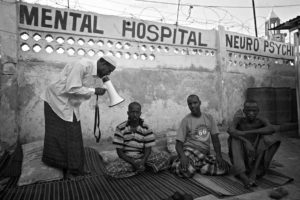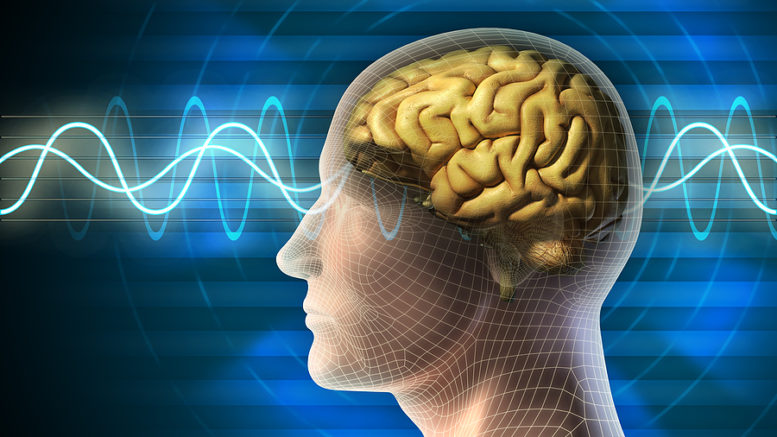Historically, Somalis have managed to separate their physical health from their mental well-being. The reality however is that the two are very connected. A good mental health leads to a healthy body. Unfortunately, despite this fact, Somalis have a negative connotation around the words ‘Mental Disorder’. It is a cultural bias that needs to be countered with as many resources as possible. This News Paper hopes to start the dialog and continue to report on the progress the community has made on this stigmatized issue.
First and foremost, just like any other disease, mental health is a normal curve in the population distribution of any society or community. In other words, there is 1 mentally unstable person in every 7 people in almost every indexed country in the world. Different cultures have different spiritual ways to heal mental disorders but we all agree that it affects every community around the world.
In today’s advanced society, doctors and scientists know so much about mental health that no one should suffer because of a stigma. It has been scientifically proven that mental disorders are usually linked to high intelligence. Some of the greatest scientists and inventors the world has seen suffered from a wide range of mental illnesses including Asperger’s sydrome, bipolar, autism and ADHD. A study done by King’s college in London in collaboration with Karolinska, a Swedish university, concluded that earning the higher grades in school is associated with higher risk of developing bipolar disorder. “We found that achieving an A grade is associated with increased risk for bipolar disorder, particularly in humanities and to a lesser extent in science subjects,” lead researcher James MacCabe, wrote in a study published in the British Journal of Psychiatry. “These findings provide support for the hypothesis that exceptional intellectual ability is associated with bipolar disorder.”

It is a common myth that we all hear that certain diseases did not happen when Somalis lived back home. The truth is that as Somali Americans, we now have more access to a very good health care system that happens to diagnose more problems. Mental health disorders can very much be treated and the person can often lead a productive life if it is diagnosed and treated early. Somali American (SA) spoke with an Autistic gentleman who owns and operates his own bakery with 4 employees in the suburbs of Saint Paul. He asked us to withhold his name only because he has 3 school aged children he wouldn’t want to them be picked on. We will call him Jackson for the sake of this story. “I was diagnosed with Autism at the age of 4 and I was lucky enough to have parents who made sure I got every resource to make me a normal kid” said Jackson who is married with 3 children and has one on the way. Jackson went to a special school from kinder garden to 6th grade where he was thought how to adjust in a normal class room setting, by the time he reached high school Jackson was able to attend a regular high school and graduate with honors four years later. Jackson told SA, “I found my passion for baking in high school and then got a job in a bakery and now I own a bakery”. Jackson inspired us enough that we are regular customers of his bakery now.
In Islam, it has long been known that there is a strong balanced connection between one’s mental, spiritual and physical health. According to Mansour Abu Talib, a Muslim Scholar from The University of Malaysia, “Mental medicine is a crucial branch of Islamic medicine known, in Islamic medical literature, as Tibb al-Qalb. Although Al-Tibb al-Qalb concerns mainly with spiritual and psychological health, however, spiritual medicine cannot be separated completely with physical medicine (al-tibb al-jismani) since man’s construction is from both soul and body. In other words, there is a symbiotic relationship between the two kinds of medical knowledge, as one would find it impossible to achieve one form of medical science without the other. For this reason, Muslims should be fully aware of spiritual and physical medicine because, in Islam, the spirit and the body, the soul and matter, the faith and the world have been accorded equal importance. One is able to obtain the happiness in this world and in the hereafter as long as he is physically and spiritually healthy, and it can be achieved by the art of medicine, which preserves and restores the health”, added Abu Talib.
Somali American (SA) spoke to a Somali psychologist who gave us a very unique but sobering perspective on the Somali way of thinking about mental health issues. Abyan Bashir a mental health psychologist and the host of LETS TALK THERAPY told us, “The fear of being categorized as crazy or weak is unbearable for people in our community. Some Somalis have internalized their mental health issues by insisting it is due to their lack of faith. Somali words like “buuq” which is stress along with “murug” which is sadness/depression have negative connotation and are generally avoided when Somalis speak about their mental conditions.”
The Somali community is battling some serious mental health issues which we can no longer afford to ignore. We must encourage early intervention to find cure before the disorder becomes a lifelong problem. Just like diabetes and hypertension, mental health disorders can be treated with medication prescribed by a doctor. By bringing light to the relevance Islam has on mental health, we hope the Somali community embraces Mental Health as a legitimate science that is necessary for all. We will continue to report on this topic and eventually dismiss the baseless rhetoric that continues to surround this topic.

Many Somalis will take their mentally ill relative to traditional or Khoranic healers for treatment. Mogadishu, Somalia

